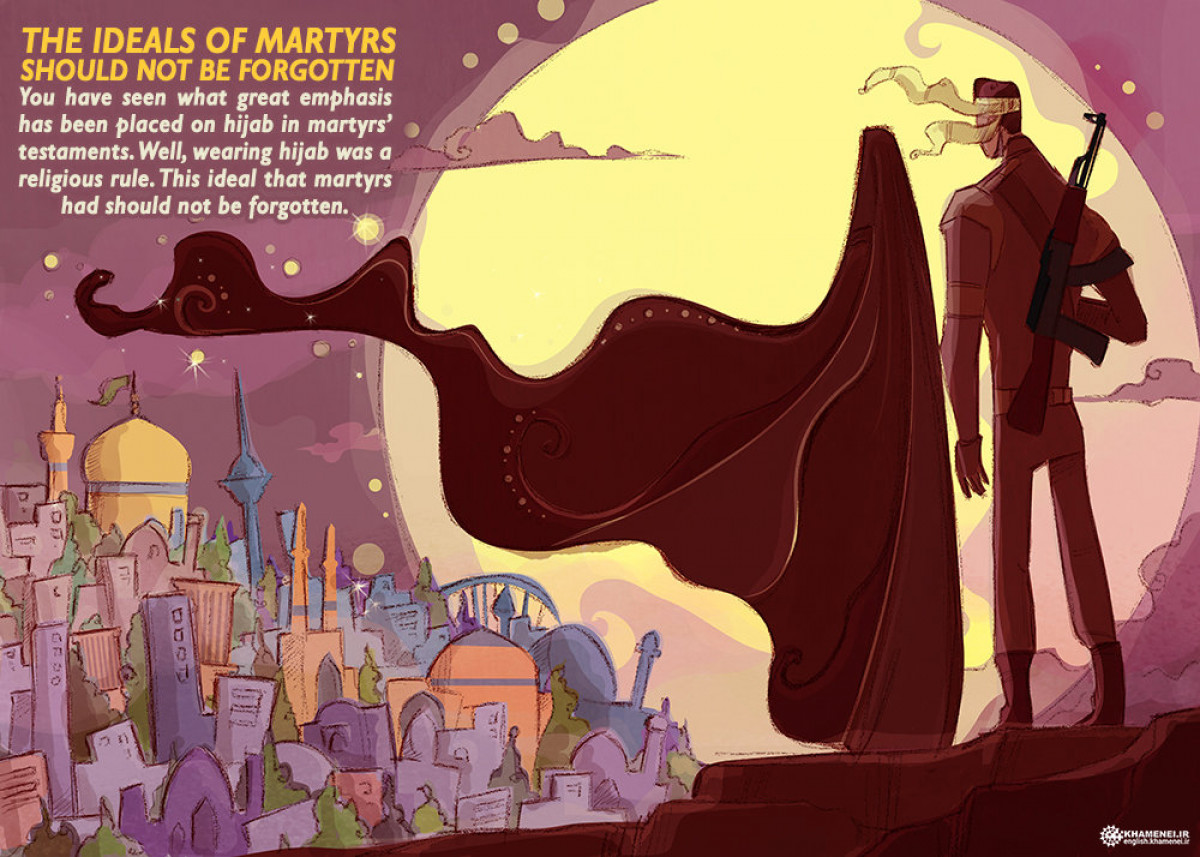 71
71
How did martyrs live their ordinary life? For example, how was their marriage? In the memoirs of some martyrs which are, in fact, their biographies – of course, I have seen, read and looked at part of these biographies – the issue of their marriage comes up. The discussion is about how they married, their way of choosing a spouse – the kind of spouse that they were looking for – their marriage ceremony, and their behavior towards their family. All of these are peaks of Islamic ethics.
Today, we have serious problems in regards to moral. Today, we need these qualities back: how do our youth think and how should they really think when it comes to choosing a spouse, presently. Our martyred role-models should remain within their sight: our martyrs are great role models. Sometimes, some people come to us and complain that we do not introduce role models to our youth.
Another issue is about their[martyr's] ideals. Well, what were the ideals of these youthful men? What incredible goals did those young men, who went out there and fought, have? This has been reflected in some testaments. They did so for God, for Imam (r.a.), and for hijab. You have seen what great emphasis has been placed on hijab in martyrs’ testaments. Well, wearing hijab was a religious rule. This ideal that martyrs had should not be forgotten.
It should not be the case that we think it was only a war like other wars, ones that others are fighting all over the world. We should not think to ourselves, “Every country has an enemy, after all. Sometimes a war breaks out, some youth go to front lines and they fight. And eventually, they are killed, injured, or return home alive. This war was like the other wars.” But, this war was unlike others. It embodied the issue of religion, of divine ideals, of the authority of Islam, of the Revolution and of revolutionary Islam, which drew the youth to the war.
Comment
Post a comment for this article